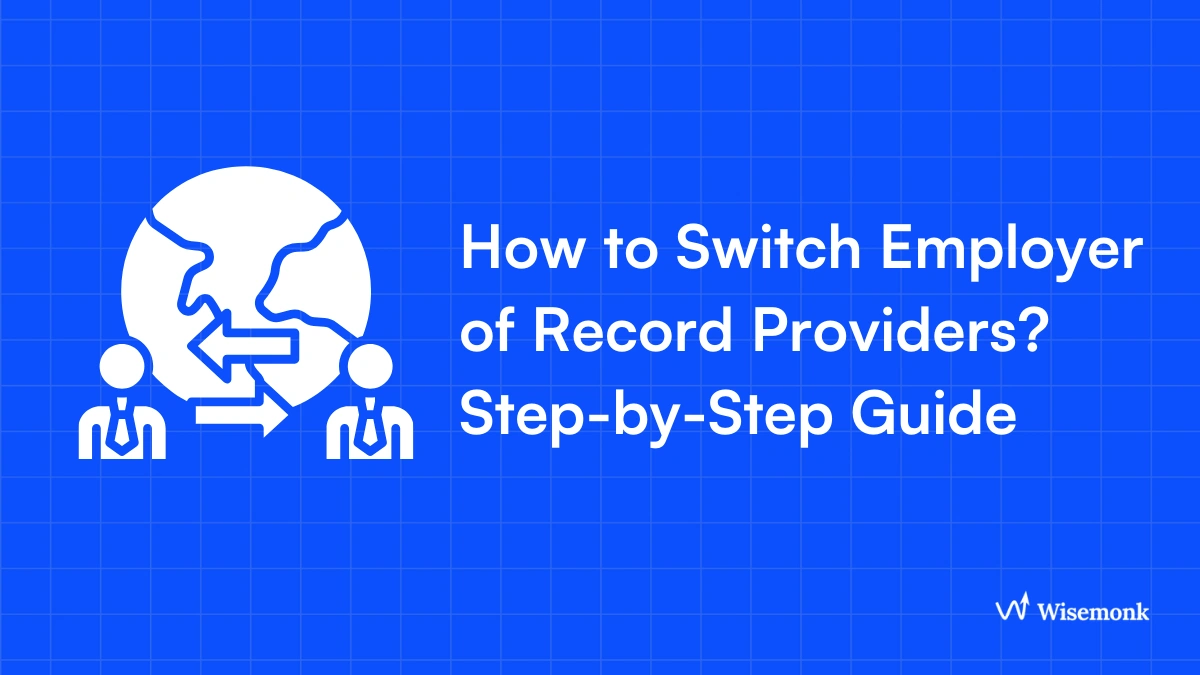- Standard working limits: Maximum 48 hours weekly and 9 hours daily, with mandatory overtime pay at double regular wage rates for excess hours
- State-specific variations: Delhi allows 150 overtime hours annually while Mumbai caps at 125 hours quarterly—compliance requirements differ significantly across cities
- Severe penalties: Non-compliance results in ₹1 lakh fines plus potential 2-year imprisonment under Factories Act; state penalties range up to ₹100,000
- Complex documentation: Mandatory Form XXIII overtime registers, daily attendance records, and wage calculation sheets required for legal compliance
- Multi-state compliance challenges: Operating across Indian cities requires understanding different Shops & Establishments Acts and varying documentation requirements
- EOR solution benefits: Professional Employer of Record services ensure 100% compliance, automated calculations, and penalty protection starting at $99/employee monthly
What are the Legal Working Hours in India Under Current Labor Laws? [toc=Legal Working Hours]
Standard Working Hours Framework
The legal working hours in India are primarily governed by the Factories Act, 1948, which establishes the fundamental framework for employee working time. Under this legislation, the standard working hours are clearly defined as 48 hours per week and 9 hours per day. These limits serve as the baseline for determining when overtime compensation becomes mandatory.
Daily and Weekly Limits
The current legal structure specifies that an adult worker (over 18 years of age) cannot work for more than:
- 9 hours in a single day
- 48 hours in a week
- 12-hour spread-over period (including rest intervals)
Mandatory Rest Periods
Indian labor laws mandate specific rest intervals to ensure employee welfare. Workers are entitled to:
- 30 minutes of rest after every 5 hours of continuous work
- At least one full day off per week (typically Sunday)
- Weekly holiday provisions with compensatory leave if required to work
State-Specific Variations
While the Factories Act provides the central framework, state-specific Shops and Establishments Acts introduce variations across different regions. Here's how major cities differ:
In our experience helping 100+ global companies set up operations in India, we've found that understanding these regional variations is crucial for compliance across different locations.
Which Key Labor Laws Govern Overtime Regulations in India? [toc=Overtime Regulations]
Primary Legislative Framework
Several interconnected laws regulate overtime in India, each addressing different aspects of employment and compensation. The regulatory landscape includes both central and state-level legislation.
The Factories Act, 1948
This foundational law serves as the backbone of overtime regulations for industrial establishments. Key provisions include:
- Scope: Applies to factories employing 10+ workers (with power) or 20+ workers (without power)
- Overtime threshold: Work beyond 9 hours/day or 48 hours/week
- Compensation rate: Double the regular wage rate
- Maximum overtime: Capped at 50 hours per quarter in most industries
Minimum Wages Act, 1948
While primarily focused on wage standards, this act also mandates overtime compensation. It establishes that:
- Work beyond prescribed hours qualifies for overtime pay
- Overtime rate must be at least double the regular wage
- Applies across all employment categories covered under minimum wage provisions
State-Specific Shops and Establishments Acts
Each state has enacted its own version of these acts, creating localized regulations:
- Working hours: Generally 8-9 hours per day, 48 hours per week
- Overtime compensation: Usually double the standard pay rate
- Industry-specific provisions: Different rules for retail, hospitality, and commercial establishments
- Gender-specific protections: Restrictions on night shift work for women employees
Emerging Labor Codes
The new labor codes introduced in 2020 aim to modernize and consolidate existing laws:
Code on Wages, 2019: Provides uniform standards for overtime pay calculation
Occupational Safety, Health and Working Conditions Code, 2020:
- Proposes 8-hour standard workday
- Maintains 48-hour weekly cap
- Introduces flexibility for 12-hour workdays within 4-day arrangements
In our understanding of the evolving regulatory landscape, these new codes will significantly streamline compliance requirements once fully implemented with corresponding state rules.
How is Overtime Pay Calculated and What are the Compensation Rates? [toc=Overtime Pay]
Standard Overtime Compensation Rate
Indian labor laws universally mandate that overtime work must be compensated at twice the regular wage rate, commonly referred to as "double pay". This applies across all sectors covered under the Factories Act and most state-specific legislation.
Calculation Methods for Different Employee Categories
Salaried Employees
For monthly salaried employees, overtime is calculated using the following formula:
Overtime Pay = 2 × [(Basic Salary + DA + Allowances) ÷ (Working Days × Daily Hours)] × Overtime Hours
Practical Example:
- Monthly Basic Salary: ₹1,00,000
- Dearness Allowance: ₹10,000
- Other Allowances: ₹4,000
- Working Days: 26
- Daily Hours: 8
- Overtime Hours: 4
Calculation:
= 2 × [(1,00,000 + 10,000 + 4,000) ÷ (26 × 8)] × 4
= 2 × [1,14,000 ÷ 208] × 4
= 2 × 548 × 4
= ₹4,384
Hourly/Daily Wage Workers
For workers paid on hourly or daily basis:
Daily Wage Calculation:
- Daily wage = Monthly salary ÷ Number of working days
- Hourly wage = Daily wage ÷ Working hours per day
- Overtime allowance = Hourly wage × 2 × Overtime hours worked
Example Calculation:
- Monthly Salary: ₹30,000
- Working Days: 26
- Daily Wage: ₹30,000 ÷ 26 = ₹1,153
- Hourly Wage: ₹1,153 ÷ 8 = ₹144
- For 2 hours overtime: ₹144 × 2 × 2 = ₹576
Industry-Specific Variations
Different sectors may have specific overtime provisions:
Manufacturing Sector
- Governed primarily by Factories Act, 1948
- Standard rate: Double pay for hours beyond 48/week
- Maximum overtime: 50 hours per quarter
IT and Services
- Follows state Shops & Establishments Acts
- Managerial roles often exempt from overtime pay
- Technical staff entitled to double pay compensation
Commercial Establishments
- State-specific regulations apply
- Overtime caps vary (50-150 hours quarterly depending on state)
We conducted research in which we found that maintaining accurate overtime records and calculations is essential for both compliance and employee satisfaction. Organizations using automated payroll systems can ensure precise calculations while avoiding manual errors that often lead to disputes.
What are the Compliance Requirements and Penalties for Overtime Violations? [toc=Compliance Requirements & Penalties]
Mandatory Record-Keeping Requirements
Indian labor laws impose strict documentation requirements on employers to ensure transparency and compliance with overtime regulations. Under Rule 79 of the Contract Labour (Regulation and Abolition) Act, it is compulsory for every contractor to maintain a Register of Overtime in Form XXIII, which must contain comprehensive details including overtime calculation, hours of extra work, employee names, and compensation provided.
Essential Compliance Documentation
Employers must maintain the following records as per various labor laws:
- Daily attendance registers showing actual hours worked by each employee
- Overtime calculation sheets with detailed breakdowns of regular and overtime hours
- Wage payment records demonstrating proper overtime compensation
- Authorization documents for overtime work approval
- Medical fitness certificates for employees working extended hours
State-Specific Penalty Structure
Overtime violations carry significant financial and legal consequences that vary across different states. Here's a comprehensive breakdown:
Central Government Penalties
Under the Factories Act, 1948, violations of overtime provisions result in severe consequences. Any employer found contravening these provisions faces punishment of imprisonment up to 2 years and a fine of up to ₹1 lakh or both. For continued violations after conviction, an additional fine of ₹1,000 per day is levied for each day of violation.
The Minimum Wages Act, 1948 imposes even stricter penalties under Section 22, prescribing five years imprisonment and a fine of ₹10,000 for violations relating to minimum wages, working hours, and overtime compensation.
In our experience helping 100+ global companies maintain compliance, we've observed that proactive record-keeping and regular compliance audits significantly reduce the risk of penalties and legal disputes.
How Do Different Industries and States Handle Overtime Rules? [toc=Industry-Specific Overtime laws]
Industry-Specific Overtime Variations
Different sectors in India have unique overtime provisions tailored to their operational requirements and workforce characteristics.
Manufacturing and Factory Sector
The Factories Act, 1948 serves as the primary governing legislation, establishing uniform standards across all manufacturing establishments. Key provisions include:
- Maximum daily overtime: 2 hours (total working hours capped at 12.5 hours including spread-over)
- Quarterly overtime limits: 50 hours per quarter in most industries
- Compensation rate: Double the regular wage rate for all overtime hours
- Mandatory rest periods: 30 minutes after every 5 hours of continuous work
Information Technology and Services
The IT sector operates under state-specific Shops & Establishments Acts, with notable variations in overtime treatment:
- Managerial exemptions: IT managers and supervisors earning above specified thresholds are often exempt from overtime pay
- Flexible working arrangements: Many IT companies implement flexible schedules within legal frameworks
- Classification challenges: Some employers attempt to circumvent overtime laws by classifying technical employees as managers or supervisors
Commercial Establishments
Retail, hospitality, and commercial businesses follow state-specific regulations with varying provisions for seasonal businesses and emergency situations.
Comprehensive State-wise Overtime Regulations
Karnataka
- Daily limits: Maximum 10 hours including overtime
- Quarterly cap: 50 hours of overtime per 3-month period
- Payment rate: Twice the normal wages (basic wages plus allowances, excluding bonus)
- Enforcement: Labor inspectors ensure compliance with penalties up to ₹250
Delhi
- Weekly limits: Total working hours including overtime must not exceed 54 hours
- Annual cap: 150 hours of overtime annually
- Special conditions: Temporary increases allowed for employee absence, emergencies, seasonal pressure
- Compensation: Double the normal wages including allowances, gratuity, and provident fund contributions
Maharashtra
- Quarterly limits: Maximum 125 hours of overtime per 3-month period
- Payment structure: Twice the ordinary rate of wages (includes salary, allowances, and bonus, excludes PF contributions and gratuity)
- Documentation: Mandatory recording of overtime immediately after work completion
- Penalties: Extending up to ₹100,000 for non-compliance
Tamil Nadu (Chennai)
- Daily working hours: Generally 8 hours with 1-hour rest after 4 hours
- Professional tax implications: State-specific professional tax calculations for overtime earnings
- Local compliance: Additional documentation requirements for commercial establishments
We conducted research across multiple states and found that maintaining compliance requires understanding both central labor laws and state-specific variations, particularly for businesses operating across multiple locations.
How Can Wisemonk's EOR Services Help Ensure Overtime Compliance in India? [toc=Why Wisemonk]
Comprehensive Compliance Management
As India's leading Employer of Record service provider, Wisemonk specializes in ensuring 100% compliance with overtime regulations across all states and industries. Our legal team continuously monitors federal and state-level changes to labor laws, ensuring your business stays ahead of regulatory requirements.
Cost-Effective Compliance Solution
Starting at just $99 per employee per month, Wisemonk offers the most affordable EOR solution in India while maintaining the highest compliance standards. Our transparent pricing includes all overtime compliance management, eliminating hidden costs associated with penalties and legal disputes.
In our experience assisting international companies with workforce expansion in India, we've found that partnering with a specialized EOR provider like Wisemonk significantly reduces compliance risks while allowing businesses to focus on growth rather than administrative complexities. Our comprehensive approach ensures that your overtime policies not only meet legal requirements but also contribute to employee satisfaction and retention.
Ready to ensure seamless overtime compliance for your Indian workforce? Contact Wisemonk today to learn how our EOR services can simplify your expansion while maintaining full legal compliance.
Frequently asked questions
Is it legal to work 12 hours a day in India?
Yes, 12-hour workdays are legal under specific conditions. The Factories Act allows a maximum 12-hour "spread-over" period including meal breaks and rest intervals. However, actual working hours cannot exceed 9 hours daily. Extended shifts are permitted in continuous process industries and emergency situations with proper authorization. In our experience, companies must ensure adequate rest periods and overtime compensation for hours beyond standard limits.
Is PF paid on overtime?
Yes, Provident Fund contributions are mandatory on overtime earnings. Both employer and employee contribute 12% each on overtime wages, just like regular salary. This applies to all overtime payments including double-rate compensation. We've observed that accurate PF calculations on overtime require precise payroll systems to ensure compliance with EPFO regulations and avoid penalties during audits.
What is the minimum salary for overtime?
There's no specific minimum salary threshold for overtime eligibility in India. All employees covered under the Factories Act or state Shops & Establishments Acts are entitled to overtime pay regardless of salary level. However, managerial and supervisory positions earning above certain state-defined limits may be exempt. Our payroll services ensure proper classification and overtime entitlements for all employee categories.
How much overtime is allowed in a month in India?
Monthly overtime limits vary by state regulations. Most states cap overtime at approximately 16-17 hours monthly (derived from quarterly limits of 50 hours). Delhi permits higher monthly averages due to its 150-hour annual cap. Manufacturing sectors under the Factories Act typically allow 16.6 hours monthly. We help companies track these limits across multiple locations to maintain compliance.
Who is eligible for OT?
All non-managerial employees working in factories, shops, and commercial establishments are eligible for overtime pay. This includes workers, technicians, clerks, and junior staff. Exemptions typically apply to managers, supervisors earning above specified thresholds, and certain professional categories like IT managers. We ensure proper employee classification to avoid compliance issues and wrongful overtime exemptions.
Are 10 hour shifts legal in India?
Yes, 10-hour shifts are legal with proper overtime compensation. The first 8-9 hours (depending on state) count as regular time, while the additional 1-2 hours must be paid at double rates. Manufacturing units often use 10-hour shifts with adequate rest periods. Our EOR services help structure these shifts compliantly while managing accurate overtime calculations and statutory compliance requirements.
How is overtime pay calculated and what limits apply under Indian labor laws?
Overtime work beyond 9 hours per day or 48 hours per week must be compensated at twice the employee’s regular wage rate. Overtime is generally capped at 50 hours per quarter or 2 hours per day. Certain managerial and supervisory staff may be exempt from overtime entitlement.
.png)


